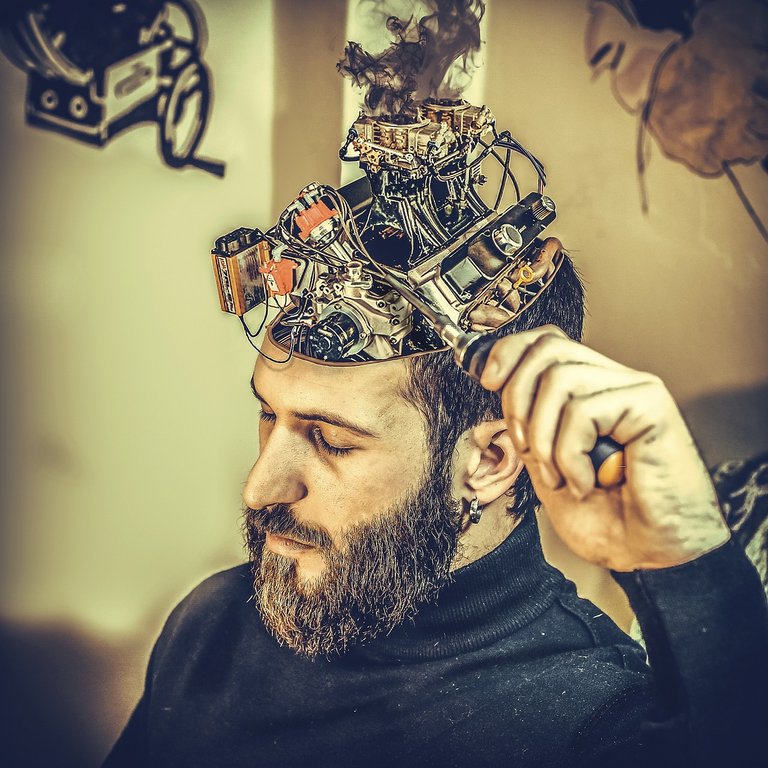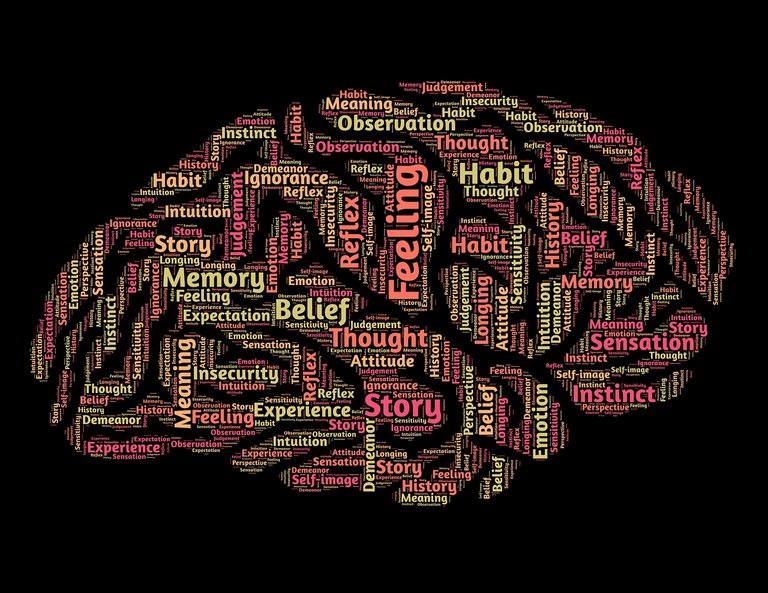Why Did I Make That Choice? Exploring the Brain and Decision-Making.
One thing my father said to me as a little boy that I can never forget is, "There is a consequence for every action." A very popular saying indeed. Growing up, I have come to the full realization and acceptance of that. Your decisions determine the outcome of your life. So, in short, to have a good life, make good decisions.

It's That Easy, Right?
So why do we still go ahead to do things we later regret? Have you ever been in a situation where, before you did something, you felt super sure of yourself that it's the right way to go? Later, you realize you were wrong and wonder why you did that in the first place. You somewhat feel "stupid" about yourself. I don't know about you, but I have had several moments like that in my past.
Until I understood this:
What if I told you that your decisions are influenced by many neurological factors?
Yeah! There is a scientific explanation for our choices, and that's very obvious. Why? We make all our decisions from the brain, the powerful round computer sitting on our necks. It's the central processing unit of our entire body and, by extension, our lives.
So wouldn't it be advantageous for you to know how this works?
Knowing how the brain processes decisions would help you understand why you make certain decisions, whether good or bad. It would help you know when you are being influenced to make a kind of choice for some reason. In my previous blogs, we talked about how hunger, lack of sleep, and stress, in general, can influence our behavior and, in turn, influence the decisions we take, which would bring the corresponding consequences. All these influences take place in the brain, and understanding this will help us make right decisions to produce good outcomes.
Tell me, how does this work?
Now, just as every organization has a Chief Executive Officer (CEO) who makes and approves all decisions made in the organization, you, as an organism, with an organ system, have your very own CEO called the prefrontal cortex. This is a region of your brain that controls complex decision-making. It does the planning and reasoning. There is one part of the prefrontal cortex, which is quite interesting to neuroscientists, as it's particularly crucial in integrating emotional signals with cognitive processes. Understanding this will help you know how your emotions are influencing your cognitive processes.
Another thing to consider is the role of dopamine, the neurotransmitter associated with pleasure and reward. This is a key player in decision-making.
Why?
We obviously want to make decisions that would bring pleasure and rewards to us. If this chemical is released during a decision-making process, on the strength of an anticipated reward, we might definitely end up making a choice in favor of it. This is where, if the reward was a mirage, we end up making a choice that leaves us in regret.
Now, consider why people get defrauded online. The scam sites present an offer with a high reward. Our ignorance of the fact that it's a scam site will lead to dopamine being produced due to the high reward we see, and this would definitely shroud our judgment.
You know that slapping or hitting someone is bad, right? But in the moment of anger, you feel the urge to do it. This is because while the prefrontal cortex engages in conscious reasoning, our emotional responses often act rapidly, sending automatic signals that influence our choices. When we are able to strike the balance between these two systems in decision-making, we will be able to make optimal decisions.
Let me give you another example:
Do you know that in moments when libido levels go up, you may probably be thinking you are so much in love with someone? After sexual intercourse and the levels drop, you then begin to ask yourself whether you truly love them or not. You may probably make a decision to marry them in that libido-heightened state and later figure out that your decision was influenced by sexual pleasures and drives. Yep! That's how far this can go.
This is why it's very important to reflect on a decision, especially life-altering ones, thoroughly before making a move. Emotions are good; they can show you where happiness lies, but they are often deceptive as they are subject to change over time. Let's even say the source of pleasure does not change; there is the likelihood that your preferences can also change as you age.
Knowing how this interplays in the prefrontal cortex to determine our decisions, we must learn to always weigh immediate pleasures and rewards against potential long-term outcomes. Our major decisions must be more future-oriented.
But hey, you can never make all the right decisions in life. We must, therefore, acknowledge the fact that not all decisions have a clear-cut answer and be ready to embrace the unpredictabilities of life, which in a way helps us make better decisions in the future.
Now, Go! My dear reader, armed with this powerful knowledge and embark on your life journey ready to make better decisions by balancing the emotional and rational aspects of your most potent organ.

Thank you for reading. I would love to hear your opinions on this matter or on how to make these blogs better. I hope you enjoyed this "blog-isode."
References and Links:
The prefrontal cortex (PFC)
Decisions and Desire
Decision-making
How the Brain Processes Information
The Prefrontal Cortex (PFC) and neural system
Thanks for your contribution to the STEMsocial community. Feel free to join us on discord to get to know the rest of us!
Please consider delegating to the @stemsocial account (85% of the curation rewards are returned).
Thanks for including @stemsocial as a beneficiary, which gives you stronger support.
It was a pleasure to include you as a beneficiary. Thanks also for the upvote and the awesome community you've created. I would love to hear your opinions on how to make these blogs more interesting, if you have any.
People who use more of the Right hemisphere of the brain like to write while those who use the left sided hemisphere more are artistic
A Great post